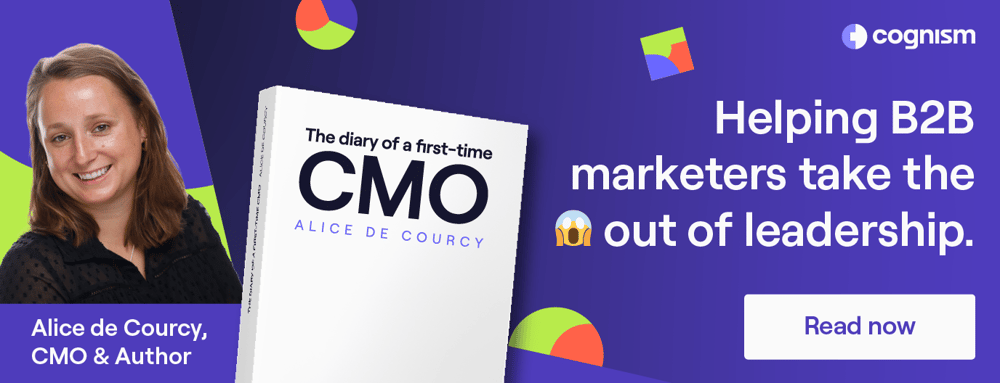12 Account Based Marketing Metrics for Increased Conversions
12 Must-track account based marketing metrics:
How can you prove to investors, your CEO and the board that ABM works?
The answer is tracking your account based marketing metrics.
The added bonus is your team can see what’s working and what isn’t for testing and improvement.
In this article, we’ve identified the best ABM metrics you need to track for success. From sales velocity to churn, these are the key performance indicators you should closely monitor.
Let’s dive in 👇
12 of the most important ABM metrics to track
Tracking the right metrics is essential to successful ABM campaigns.
The ABM metric marketers track the most is revenue won. (Hubspot)
But you need to know more than that if you want to run highly effective sales strategies and maximise your ROI.
The following data driven marketing metrics will ensure you focus on the best ABM KPIs to refine your process.
1. Number of target accounts
At the start of the ABM process, you must effectively engage with the right people.
Start with an account based marketing template, establish your Ideal Customer Profile ( ICP), and track the number of people you reach with content in your target accounts.
Do you have the right contact details for each account?
If you notice any irregularities, you’ll need to enrich your database.
Another ABM metric to consider here is intent.
How many of your high-value accounts have shown intent to buy?
Trustworthy providers like Cognism or ZoomInfo are great options for intent data and lead enrichment.
💡 See how easy it is to enrich your database with one of these ABM tools via this enrichment product tour.

Global Director of Data @CEC Marketing

2. Target account engagement
This is a crucial ABM metric that measures your target accounts’ engagement level.
How so?
You can gain valuable insight into how interested and active your target accounts are with your brand, products, or services.
There are several key components that can be measured to gauge target account engagement.
These include:
- Website visits.
- Content downloads.
- Event registrations.
- Social media interactions.
- Email opens.
By tracking these metrics, you can better understand which accounts show the most interest in your offerings and tailor your marketing strategies accordingly.

3. Social media engagement
There are a lot of account based marketing KPIs that fall under the umbrella of social media engagement:
- Engagement time.
- Website visits.
- Page views.
- Click through rate.
It depends on how granular you want to get with your ABM reporting.
Some top-of-funnel ABM metrics might come across as vanity metrics that won’t impress your investors. However, they are always good to consider when evaluating the success of an ABM campaign.
You want to track the number of emails opened, webpages visited, and content downloads related to your ABM program. Knowing this metric will tell you how effectively your marketing campaigns generate interest and engagement from target accounts.
Look at how many target accounts interact with your social media content.
If you are using paid social ads, how many of your target contacts are seeing them?
After account based engagement, the next step is to direct prospective buyers to your website.
Monitor how many visits your website gets from your target customers before moving on to MOFU metrics. Key questions to ask are:
- How much time are your contacts spending on your site?
- How many pages do they visit per session?
- Do they watch your videos through to the end?
Some pages on your site are more important than others when gauging interest.
What are the page views from your target contacts on your pricing pages or contact pages, for example?
Lastly, factor in engagement rate by individual account.
It’s important to look at how individual accounts respond to your campaigns. ABM is all about personalisation; monitoring which tactics and strategies are the most successful in driving engagement for individual accounts makes sense.
4. Sales velocity
An important ABM success metric is sales velocity - how fast your prospect moves down the marketing funnel and starts generating revenue.
Monitoring the velocity at which leads move through your pipeline is a great way to understand which campaigns drive the most qualified leads and help them move through the funnel more quickly.
Knowing this metric will help you understand which marketing strategies are the most effective in driving conversions.
Also, consider Cost per Acquisition (CPA) as part of this ABM metric. You need to know your CPA for each ABM strategy you use.
This ABM metric will tell you whether or not the money and resources spent on a particular sales campaign are worth it in terms of gaining new customers.
💡 You might also be interested in our top lead generation KPIs for more ideas when creating your list of ABM success metrics.
5. Form completions
In the middle of the ABM funnel, it becomes less about reach and more about quality engagement.
Form completions are an ABM benchmark metric. They tell you that your content has resonated well with your target audience, and they want more.
However, you can’t consider a form completion as intent to buy. So don’t immediately start selling your product until you’ve factored in the main reason a potential customer has provided their contact details.
Cognism CMO Alice de Courcy’s book, 'Diary of a First-time CMO” explores this topic well.
Read the chapter on ‘going from lead gen to demand gen’ for tips to reduce churn. Click the banner to jump directly to it 👇
6. Meetings booked
The top and middle of the ABM funnel are for warming up your target contacts; the bottom is where you start the business of account based selling.
And what better BOFU step to monitor than a meeting booked and attended with your sales rep?
Tracking the number of meetings booked and attended helps determine the effectiveness of your ABM campaign and can help predict MQLs and SQOs.
By understanding this ABM metric, you can better focus your efforts on the tactics most likely to drive conversions and ensure you’re not wasting time or money on low-quality leads.
7. Conversion rate
Conversion rates are the most important metrics for ABM success.
You should consider a few factors here:
- Number of conversions: when it’s time to close the deal, how many of your target accounts become customers?
- Engagement level vs conversion rate: This account based marketing metric can tell you a lot about the performance of your campaigns. A large discrepancy between the two metrics could indicate that some accounts are engaging but not converting, which could mean that more nurturing is required before those leads become customers.
- Conversion rate by channel: Knowing this ABM metric will help you determine which channels to prioritise when launching future campaigns and which should be a lower priority.
💡 You might also be interested in our B2B marketing metrics list for more BOFU metrics to track.
8. Average deal size
Average deal size is next on the list of the most important ABM metrics to track.
To justify the time, effort and expense of ABM, your deal size has to be higher than it was before you started ABM.
What value are your ABM campaigns providing your organisation?
Knowing this metric will tell you whether each targeted account will likely generate more revenue than a regular customer, which is one of the main goals of account based marketing.
9. Revenue won
This ABM KPI measures the total revenue generated from target accounts that have successfully converted into customers.
It provides crucial insight into the effectiveness of your ABM strategies. You can also see how your campaigns drive revenue and evaluate the next steps to achieve your overall business goals.
To calculate this ABM success metric, you must track and measure the total revenue generated from successfully converted target accounts. This includes the initial sale and any upsells, cross-sells, and renewals resulting from the ABM campaign.
10. Upsells
ABM doesn’t stop once you close with your target account. It’s just the beginning. As you move your ideal customer through the funnel, the strong relationship you have built should help you turn your customer into a raving fan.
And, according to this Demand Gen Report from ABM in Action, 80% of marketers say ABM improves customer lifecycle value while contributing to more upsells and renewals.
Which makes tracking upsells one of the best ABM metrics.
Look at your current customers:
How much revenue have you made selling other products to your ABM accounts?
And are there any who can benefit from an upsell?
All of these factors have an impact on revenue.
11. Referrals
When it comes to ABM measurement, customer referrals can be one of the hardest metrics to track.
To measure this ABM metric, you’ll need to know how many new customers your current customers have referred to you.
Sure, you can ask, ‘How did you hear about us?’ on a form, but some referrals happen on dark social and might lead to a direct conversation with a rep.
To combat this, some B2B companies set up referral reward programs to reward customers for referrals and track where each new customer started their buying journey.
12. Churn
Churn is a strategic ABM metric.
You need to know how many high-value accounts aren’t renewing their contracts and why.
Your marketing and sales teams should focus on attracting new customers and ensuring the high lifetime value of existing accounts.
If your company’s LTV is low and you’re experiencing high churn, your team needs to investigate what has gone wrong after the sale.
If you’d like to learn more about account based reporting across your campaigns and paid, watch this video 👇
ABM success starts with quality data
These ABM metrics will show you how to improve your campaigns for the best results.
But you’ll need quality, compliant B2B data to start.
Cognism is perfect for account based marketing. With it, you can:
- Access account and contact data on-demand.
- Calculate your TAM and explore your ICP for new campaigns or market entries.
- Find new personas and companies that weren’t even on your radar.
- Generate lists of accurate business emails, mobile numbers, and social handles.
- Update incorrect, incomplete, or unusable personal data with actionable business information.
- Identify and reach out to companies searching for your solution right now.
Interested? Then book your demo with us today! Click the banner to get started 👇


![Lead Generation Companies & Services [+How to Choose]](https://www.cognism.com/hubfs/Updated-resource-card-2.png)
/SMB%20ABM/Blog_Image_How%20SMBs%20Can%20Run%20Enterprise-Level%20ABM%20on%20a%20Lean%20Budget%20%20Resource%20Card.webp)
/B2B%20marketing%20predictions/b2b-marketing-trends-2026-card.webp)